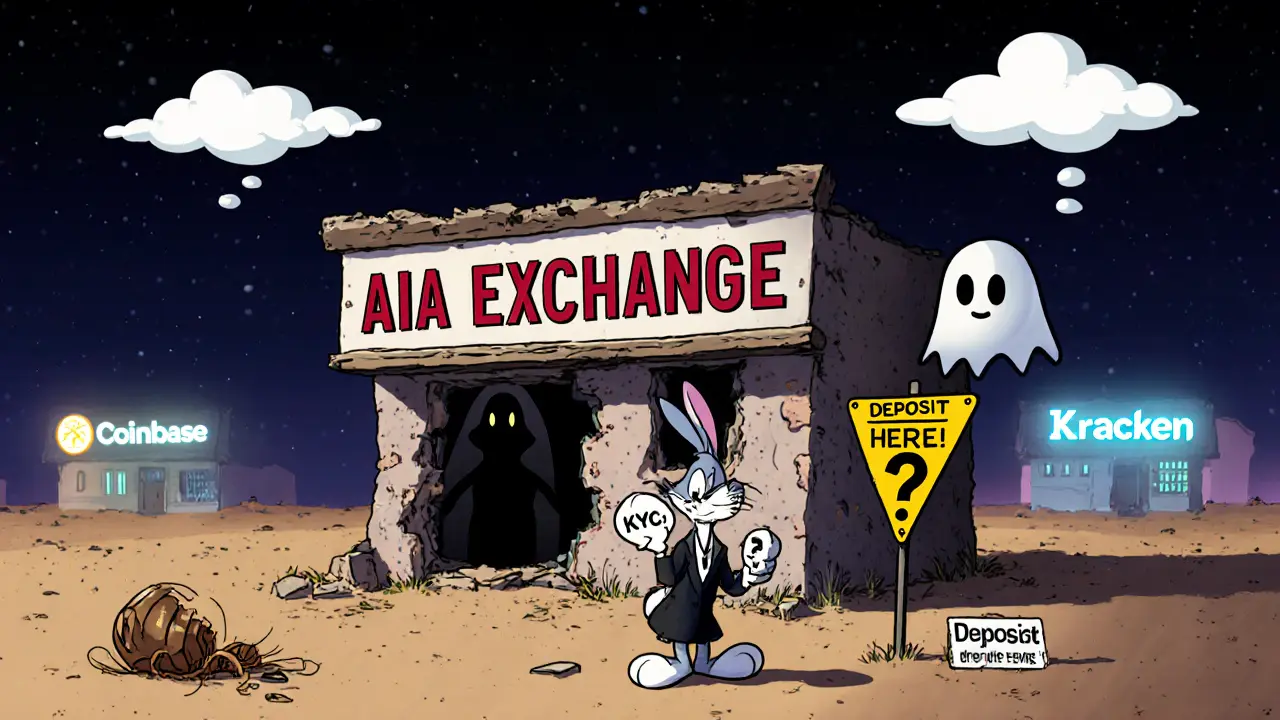AIA Exchange scam: How to spot fake crypto exchanges and avoid losses
When people talk about the AIA Exchange scam, a fraudulent crypto platform pretending to be a legitimate trading service. Also known as AIA Exchange fraud, it’s one of many fake exchanges designed to steal deposits and disappear. These aren’t glitches or bugs—they’re carefully built traps. Scammers create professional-looking websites, fake testimonials, and even fake customer support lines to look real. But if an exchange doesn’t list its team, has no regulatory license, and pushes you to deposit fast, it’s a red flag you can’t ignore.
Real exchanges like OKX, a regulated global crypto platform with transparent fees and security audits or VinDAX, a verified exchange with public trading volume and user reviews don’t need to beg you to sign up. They don’t promise 10x returns overnight. They don’t ask for your private keys. And they don’t vanish when you try to withdraw. The AIA Exchange scam works because it mimics these trusted platforms—but without the backbone. It’s like buying a Rolex from a stranger on Instagram: the packaging looks real, but the movement inside is plastic.
Scammers often use fake airdrops, cloned websites, and social media bots to lure victims. You might see a post saying "AIA Exchange just listed $F token—claim your free coins!" But if you check the token’s real market data, you’ll find SynFutures ($F) is traded on legitimate DEXs like Uniswap, not on some unknown site called AIA. Fake exchanges also disappear from CoinMarketCap and CoinGecko. They don’t have liquidity, trading pairs, or withdrawal history. They’re ghosts.
What’s worse? Once you send crypto to one of these scams, it’s gone forever. Blockchain is irreversible. No customer service line can reverse it. That’s why verifying an exchange before depositing isn’t optional—it’s survival. Check their domain registration. Look for real team members with LinkedIn profiles. See if they’re registered with any financial authority. And never, ever trust a platform that doesn’t let you control your own keys.
You’ll find real reviews below of exchanges that actually work—like Braziliex, which shut down for good, and ko.one, which raised every red flag imaginable. These aren’t just stories. They’re case studies in how scams evolve, how they fool people, and how to spot them before it’s too late. The goal isn’t to scare you. It’s to arm you with facts so you never lose money to a fake website again.

AIA Exchange Crypto Exchange Review: What You Need to Know Before Trading
AIA Exchange shows no user reviews, no regulatory info, and no presence in major crypto lists. With zero transparency, it's too risky to use. Stick with verified exchanges like Coinbase or Kraken instead.